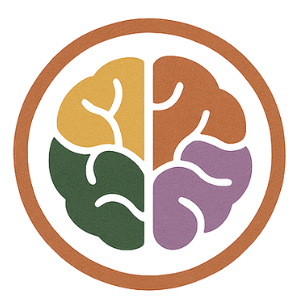Hyper-fixation and Special Interests: How Love Presents
What do you define as beautiful?
Do you think of sunsets and picturesque ocean views? Or do you think of the moment when someone laughs genuinely, the soft whirring of a fan lulling you to sleep? Do you think of both? Of coral reefs and corny jokes and the moment when something clicks on your brain?
Or do you think about the all-consuming love of hyperfixation?
I think of all of these—I mean, I came up with the examples!—and so much more. But nothing has quite captured my love, or loathing, as hyperfixations have. I have both autism and ADHD, often called AuDHD, both of which are prone to hyperfixations and special interests.
First things first, what is hyperfixation and special interests? Hyperfixation is a short lived burst of engaging with a hobby or interest. It can be hard to tear yourself away, sometimes causing stress for doing so. It can also disrupt previous obligations. These often last days or weeks.
Compare this to special interests, long lived passions that often last months or years (or lifetimes, as I've read). They are more ‘stable’, you can usually take breaks and fulfill commitments without stress. But that doesn't mean they don't take up your life! People often dedicate all their free time to learning about their special interest, collecting objects that remind them of it, or incorporating it into their lives.
But what about having a combination of both at the same time? Special interests are not exclusive to autism, and vice versa for hyperfixations’ exclusivity to ADHD. To have a special interest and a hyperfixation—or even multiple hyperfixations and special interests—at the same time? It's a different beast entirely. Neurodiverse people respond to their special interests and hyperfixations differently.
I've had days where I sit down for several hours and look at fanart that others have made for my current hyperfixation—but when I switch gears, I investigate my special interest by learning obscure facts about it. In those hyperfixation hours, I don't eat or talk to anyone. And when I manage to find myself out of that all-consuming love for something, I'm able to casually look into my special interest while making myself food. It's not planned like a schedule, nowhere near that. It's just the way my brain interacts with the things I love.
But sometimes you have periods of a special interest that become hyperfixation-like. For me, when new content comes out or I decide to re-experience my interest, I can suddenly have a hyperfixation of my special interest. I've had this happen several times over, each tending to follow a pattern of ‘symptoms’. I engage in what others have made, I make bracelet after bracelet, I write stories and make art, I imagine scenarios in my head over and over again. But the example that always comes to mind is the weeks where my hyperfixation of a special interest made me feel sick.
Of all of my hyperfixations, past and present, I've only had five special interests. The one I’ll be skimming over today, Double Life, is a webseries about characters trying to outlive (and sometimes outkill) their friends. During the period of weekly episode releases, I would do nothing but think about these two. I consumed art, textposts, analysis, fanfiction, you name it. I created my own art through rainbow looming (jewelry made from interweaving small rubber bands). I would take any song I listened to and somehow apply it to them. But, while all this was going on, I was nauseous. Every time I would think about my favorite characters, their failures especially, I would lose my appetite and become queasy. I would loathe other characters that slighted them and dream about ripping them to shreds. It was so intense that I cried when they lost, tears blurring my eyes as I finished another bracelet. It was one of the most extreme hyperfixations I've ever experienced, with high highs and low lows.
So why the opening paragraph (or two) about beauty? Why all this rambling about how hyperfixations and special interests present in me? Well, it's all so I can tell you a secret. I want you to understand how they can hurt, how they can disrupt and become unrelenting, inescapable. And yes, how they can affect you physically. But I also want you to understand that those facts don't make them inherently bad. (You can learn to take breaks, have people remind you to eat, set alarms to go to sleep. There are always ways to cope.)
The secret is, hyperfixations and special interests come about because of the love we feel for things. It's telling, the joy we get from investing and learning and creating and even destroying. All because we love something so, so much. It isn't useless. It never has been, even if society has conditioned you to think it is. Aside from genuinely learning skills and techniques—like for me: how to mend, how to fall correctly, how to draw a face, how to feel a pulse in someone, how to safely burn parts of paper—it brings you joy, makes you happy and sometimes even full of loathing. It's the genuine human experience, intrinsically part of who you are with the ups and downs of life. It all comes from love, and isn't there something so beautiful about that?
Come as you are, take what you need. I’ll be here.
